Rode’s Rodecaster Duo is a more compact, cheaper version of one of the best podcasting mixers on the market
The RodeCaster Pro II now has a smaller, similarly-spec’d sibling
The Rode RodeCaster Pro II is undoubtedly one of the best podcast mixers on the market, but if you’re looking for something a little smaller and more affordable, Rode now has another option for you to consider: the RodeCaster Duo.
Billed quite unashamedly as a compact version of the RodeCaster Pro II, this halves the number of Neutrik combo inputs from four to two, but features the same high-gain Revolution preamps. The 5.5-inch touchscreen has made it across, too, as have the Aphex audio processing features.
Further connectivity options include a dual-channel wireless receiver for connecting two Rode Series IV wireless transmitters (such as the Wireless GO II and Wireless ME) and a 3.5mm TRRS input for plugging in headphones or a headset.
As you’d expect, there are fewer physical faders than on the RodeCaster Pro II (four down from six) but you also get three virtual faders, giving you control of up to seven channels (there are nine channels on the RodeCaster Pro II). Dual USB-C connections and Bluetooth connectivity give you even more scope to bring in other audio sources (computers and smartphones, for example) and the six pads can be programmed to trigger pretty much any sound you want.
Of course, one of the advantages of the RodeCaster Duo is that it’s smaller than the RodeCaster Pro II, so could be a good option if you record a lot of podcasts ‘on location’. Audio can be recorded directly to a computer, microSD card or another form of external storage.
Rode says that it’s committed to updating the RodeCaster Duo alongside the RodeCaster Pro II, with new features and performance enhancements coming to both consoles.
Find out more on the Rode website. The Rodecaster Duo costs $499/£569.
Get the MusicRadar Newsletter
Want all the hottest music and gear news, reviews, deals, features and more, direct to your inbox? Sign up here.
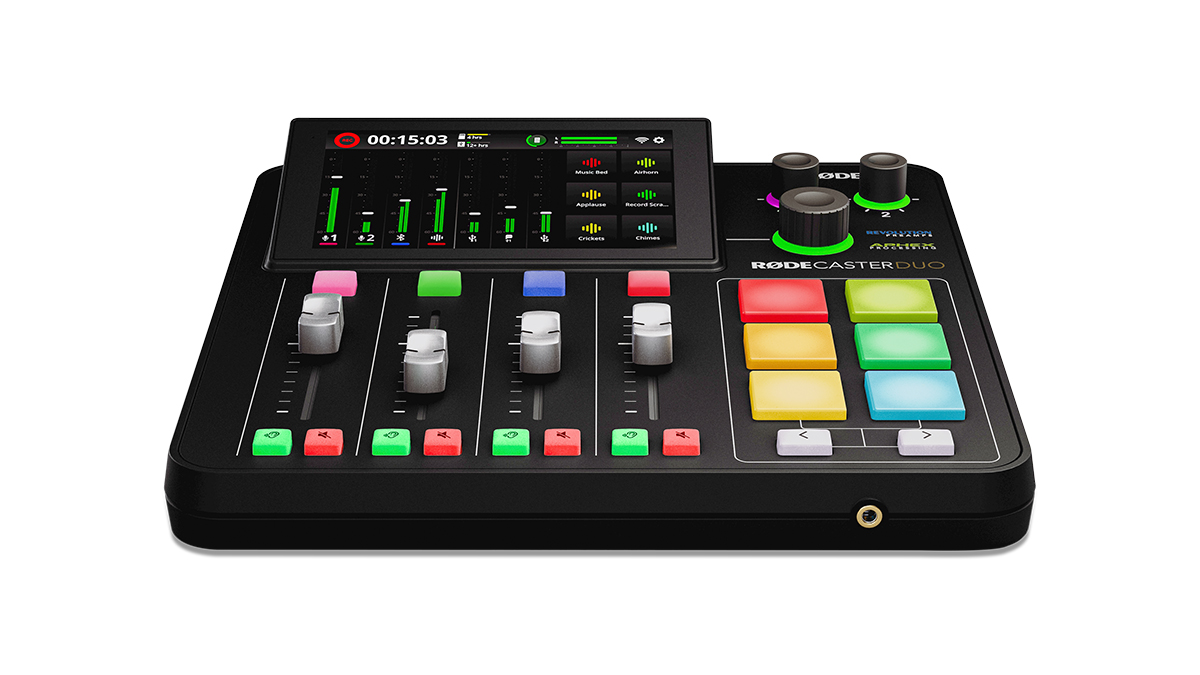
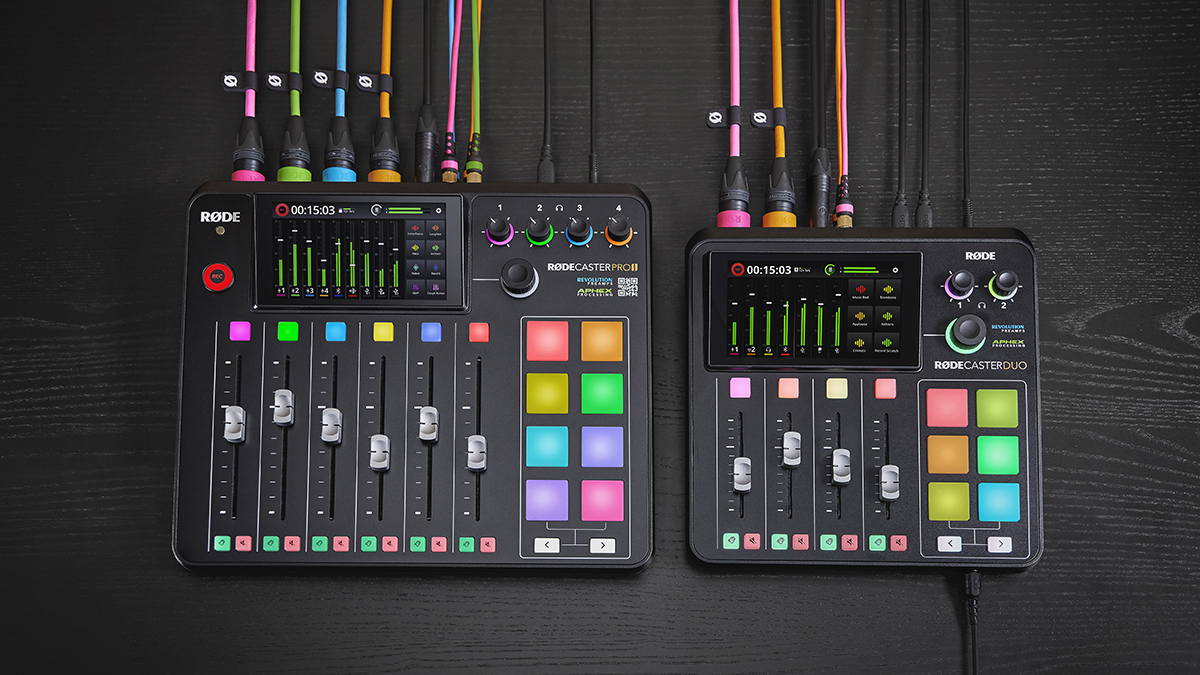

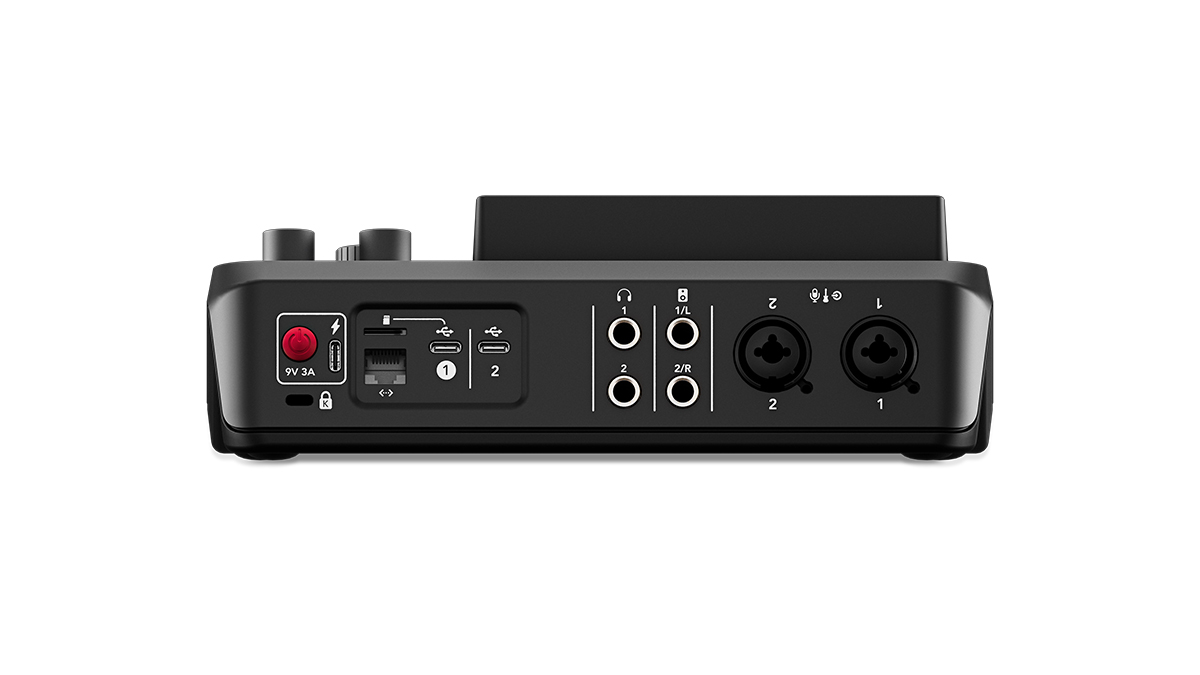
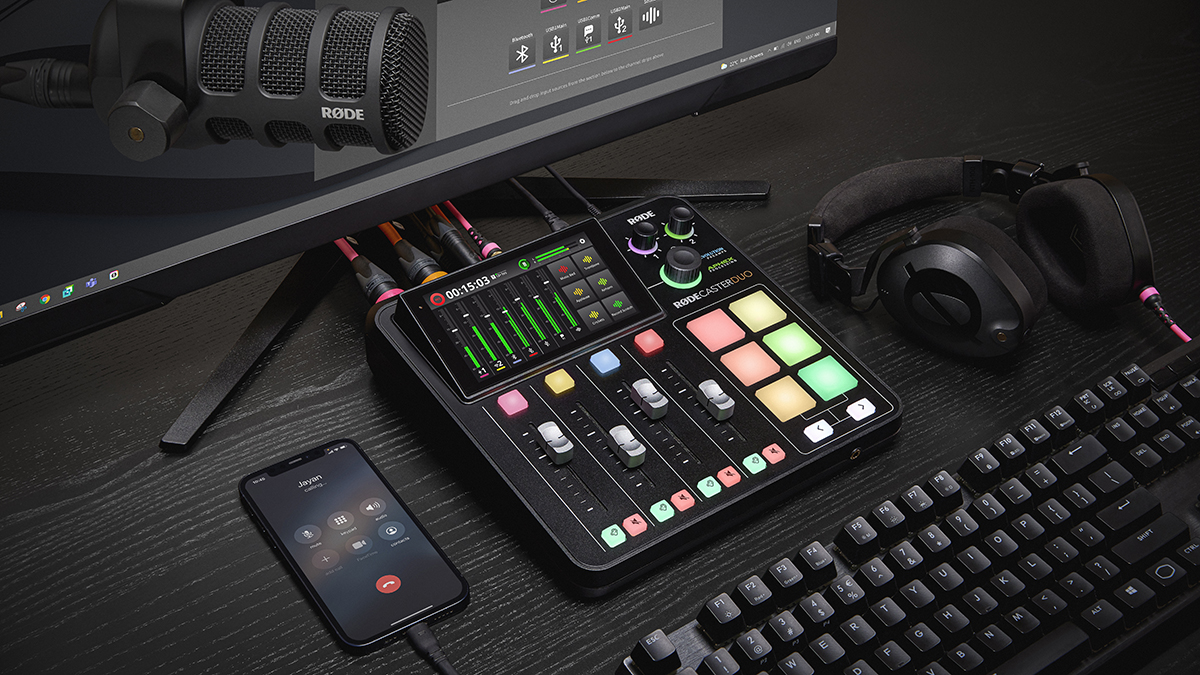



I’m the Deputy Editor of MusicRadar, having worked on the site since its launch in 2007. I previously spent eight years working on our sister magazine, Computer Music. I’ve been playing the piano, gigging in bands and failing to finish tracks at home for more than 30 years, 24 of which I’ve also spent writing about music and the ever-changing technology used to make it.





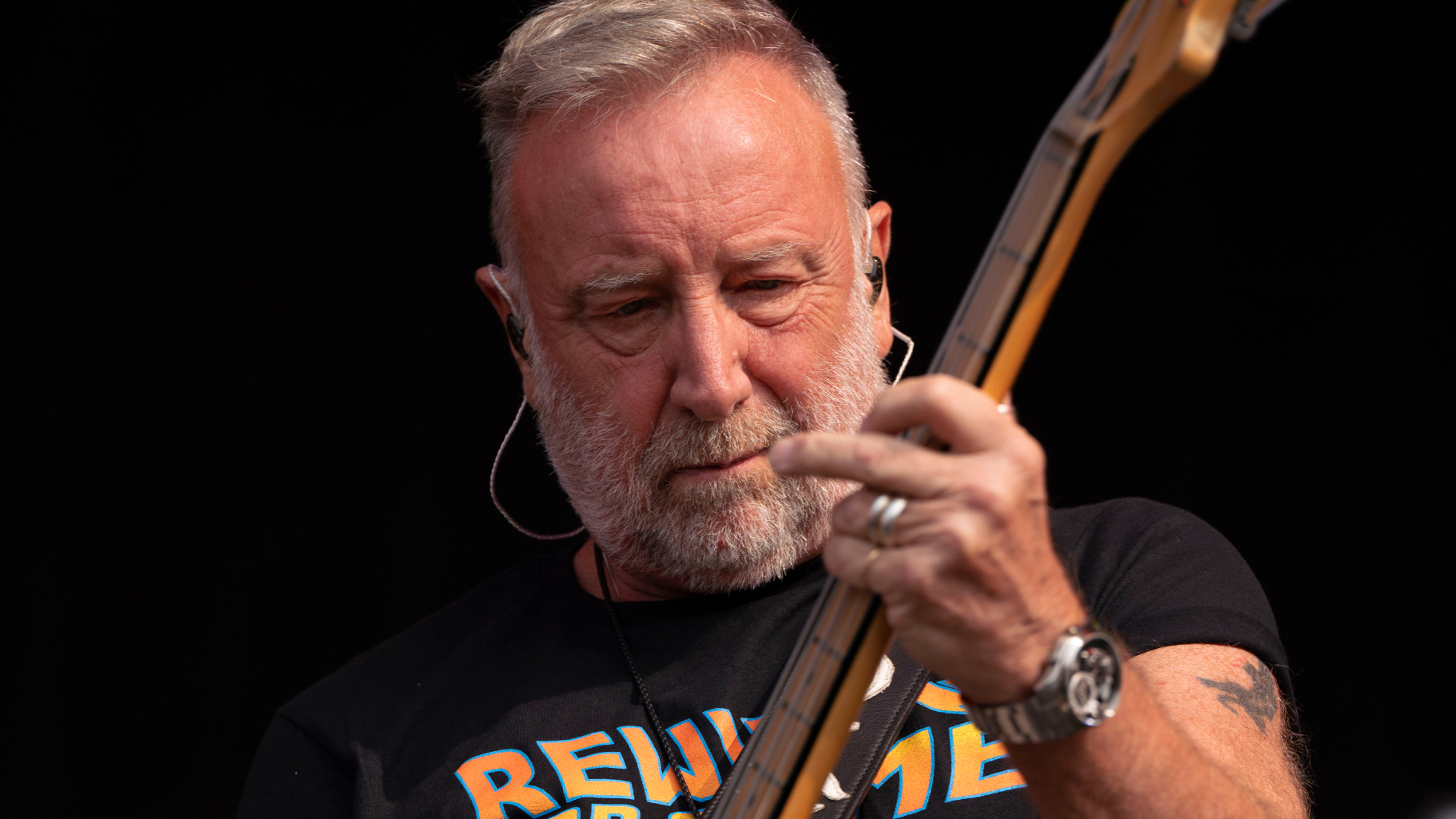
![PRS Archon Classic and Mark Tremonti MT 15 v2: the newly redesigned tube amps offer a host of new features and tones, with the Alter Bridge guitarist's new lunchbox head [right] featuring the Overdrive channel from his MT 100 head, and there's a half-power switch, too.](https://cdn.mos.cms.futurecdn.net/FD37q5pRLCQDhCpT8y94Zi.jpg)


